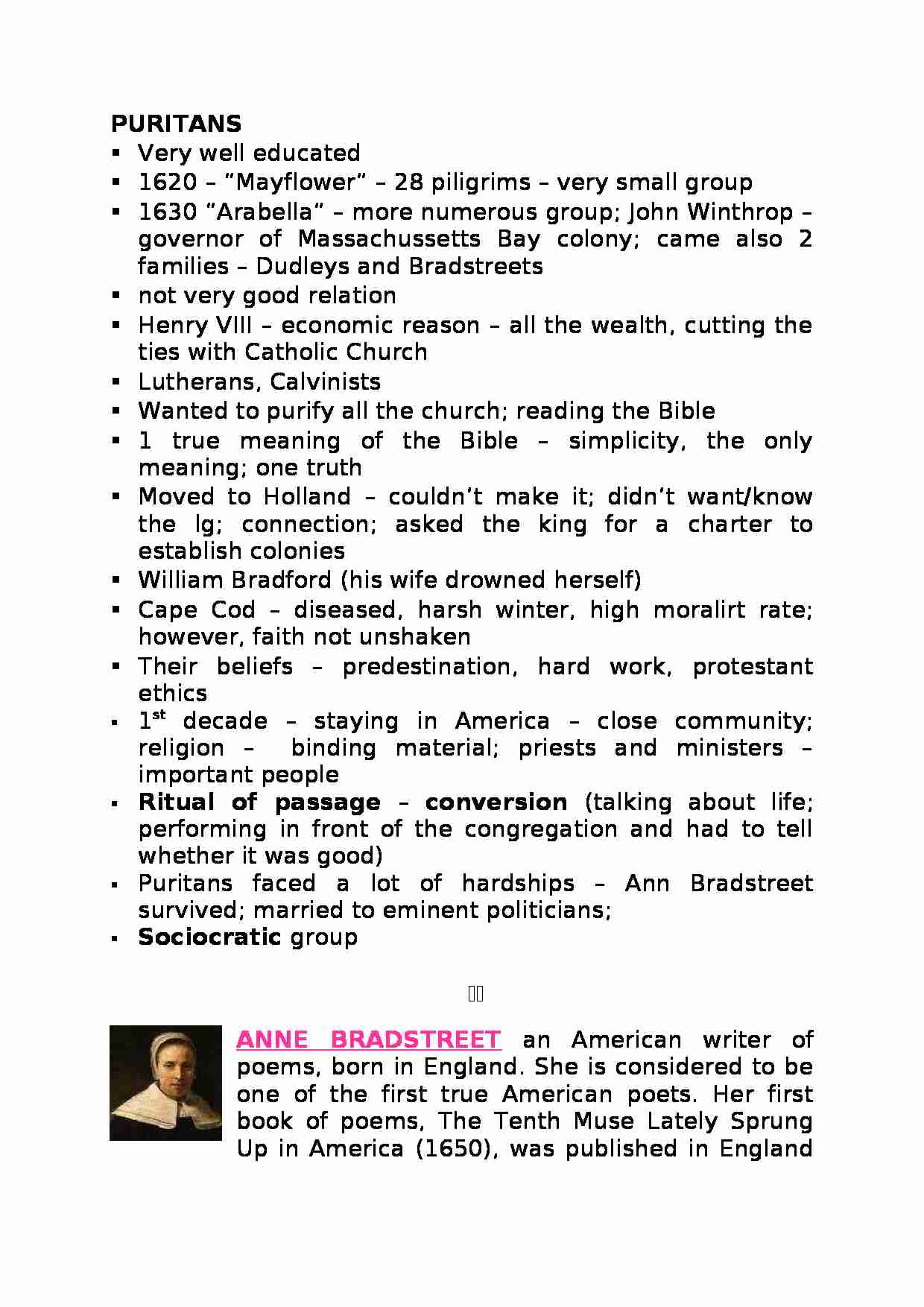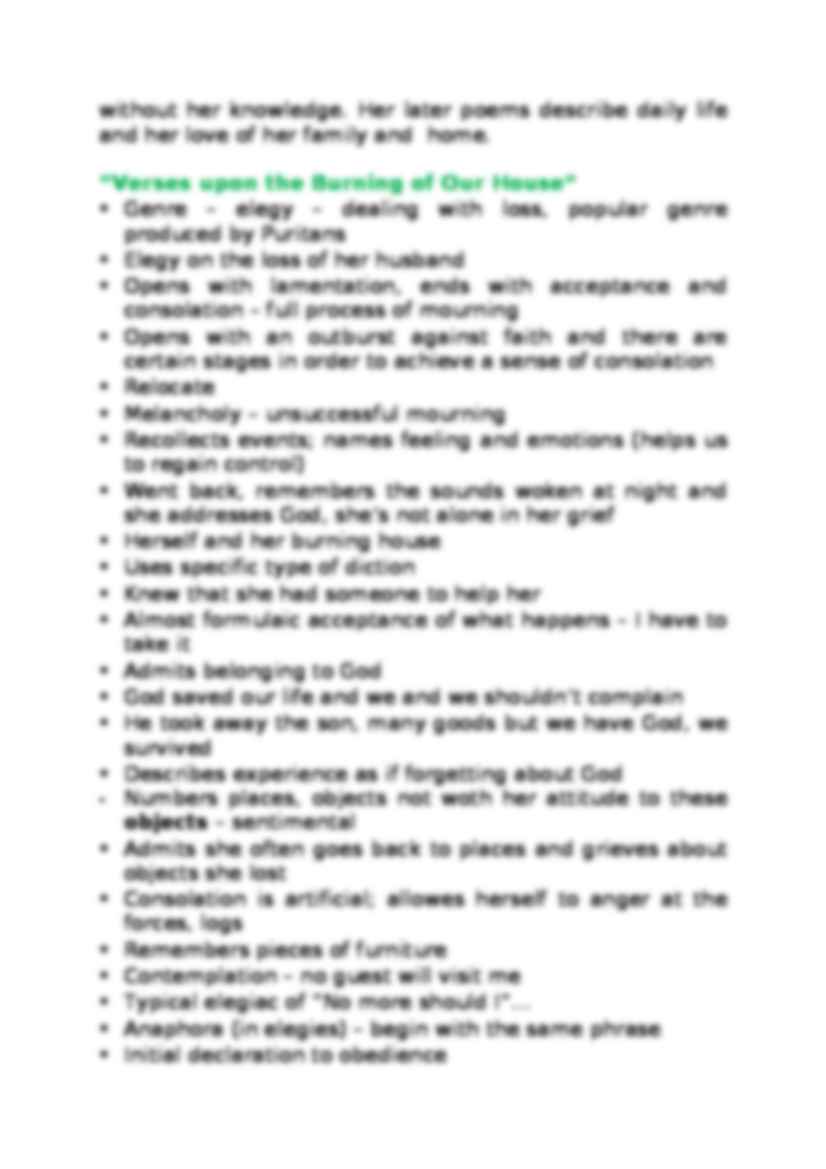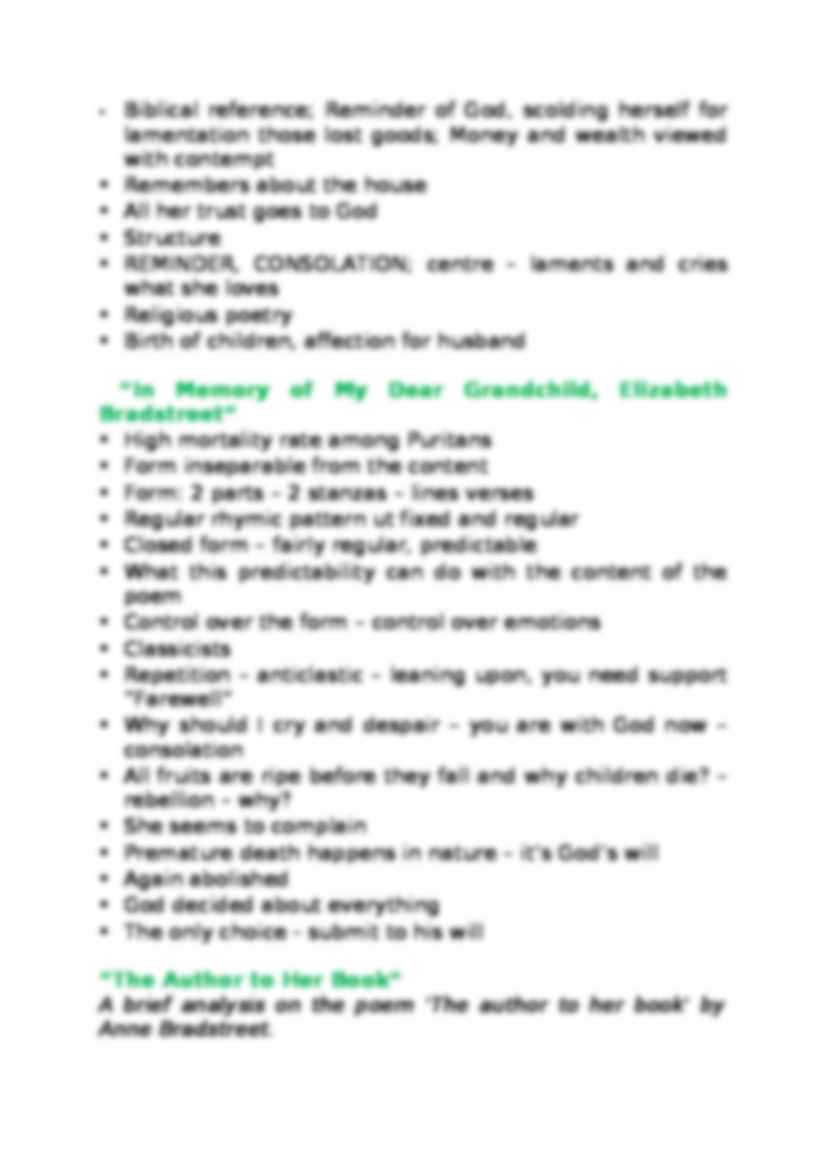To tylko jedna z 7 stron tej notatki. Zaloguj się aby zobaczyć ten dokument.
Zobacz
całą notatkę



Puritans
Very well educated
1620 - “Mayflower” - 28 piligrims - very small group
1630 “Arabella” - more numerous group; John Winthrop - governor of Massachussetts Bay colony; came also 2 families - Dudleys and Bradstreets
not very good relation
Henry VIII - economic reason - all the wealth, cutting the ties with Catholic Church
Lutherans, Calvinists
Wanted to purify all the church; reading the Bible
1 true meaning of the Bible - simplicity, the only meaning; one truth
Moved to Holland - couldn't make it; didn't want/know the lg; connection; asked the king for a charter to establish colonies
William Bradford (his wife drowned herself)
Cape Cod - diseased, harsh winter, high moralirt rate; however, faith not unshaken Their beliefs - predestination, hard work, protestant ethics
1st decade - staying in America - close community; religion - binding material; priests and ministers - important people
Ritual of passage - conversion (talking about life; performing in front of the congregation and had to tell whether it was good)
Puritans faced a lot of hardships - Ann Bradstreet survived; married to eminent politicians; Sociocratic group
Anne Bradstreet an American writer of poems, born in England. She is considered to be one of the first true American poets. Her first book of poems, The Tenth Muse Lately Sprung Up in America (1650), was published in England without her knowledge. Her later poems describe daily life and her love of her family and home.
“Verses upon the Burning of Our House”
Genre - elegy - dealing with loss, popular genre produced by Puritans Elegy on the loss of her husband
Opens with lamentation, ends with acceptance and consolation - full process of mourning
Opens with an outburst against faith and there are certain stages in order to achieve a sense of consolation
Relocate
Melancholy - unsuccessful mourning
Recollects events; names feeling and emotions (helps us to regain control)
Went back, remembers the sounds woken at night and she addresses God, she's not alone in her grief
Herself and her burning house
Uses specific type of diction
Knew that she had someone to help her Almost formulaic acceptance of what happens - I have to take it
Admits belonging to God
God saved our life and we and we shouldn't complain He took away the son, many goods but we have God, we survived
Describes experience as if forgetting about God
Numbers places, objects not woth her attitude to these
(…)
… God, scolding herself for lamentation those lost goods; Money and wealth viewed with contempt
Remembers about the house
All her trust goes to God
Structure
REMINDER, CONSOLATION; centre - laments and cries what she loves
Religious poetry
Birth of children, affection for husband
“In Memory of My Dear Grandchild, Elizabeth Bradstreet”
High mortality rate among Puritans
Form inseparable from the content…
… literary world. She uses a tone of imagery in which the striking images she generates each bear meaning throughout the text. The poems atmosphere is heartrending and rather explicit. The scenario she puts the poem in would seem rather harsh but yet she is successful in bringing out the theme of low self-esteem in her own work. Throughout the poem there is an image of a baby being born and cared for. This…
…. She speaks of `rubbing off a spot' and `stretching thy joints' and these are all images contributing to her attempt to re-write her book. Edward Taylor born in the son of a farmer in England around 1642, the poet crossed the Atlantic in 1668 and was admitted with advanced standing to Harvard College, graduating in 1671. Taylor roomed with Samuel Sewall, the judge who later presided at the Salem witch…
... zobacz całą notatkę






Komentarze użytkowników (0)